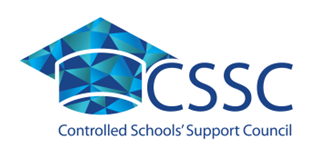Maths A-Level
Mathematics continues to remain the most popular A Level choice for pupils in Northern Ireland, not least because of the key transferrable skills it allows pupils to develop and the career pathways that it opens up. In Ballyclare High School we follow the CCEA specification, which has been revised for first teaching in September 2018.
The specification can be found here:
https://ccea.org.uk/post-16/gce/subjects/gce-mathematics-2018
At AS level Year 13 pupils complete two externally assessed units:
AS 1: Pure Mathematics (60% of AS and 24% of A Level, assessed by a 1 hour 45 minute paper)
AS 2: Applied Mathematics (40% of AS and 16% of A Level, assessed by a 1 hour 15 minute paper)
These units constitute a final AS qualification; however, almost all of our AS pupils choose to continue with mathematics into Year 14 adding the A2 units to achieve a full GCE A level qualification. These modules are:
A2 1: Pure Mathematics (36% of A Level, assessed by a 2 hour 30 minute paper)
A2 2: Applied Mathematics (24% of A Level, assessed by a 1 hour 30 minute paper)
The course builds on work covered in GCSE Further Maths, investigating algebra and functions, geometry, trigonometry, exponentials and logarithms, differentiation and vectors. They also examine quantities and units in mechanics, kinematics, forces and Newton’s laws, statistical sampling, data presentation and interpretation, probability and statistical distributions. It is therefore of great benefit to pupils to have already completed the Further Mathematics course successfully at GCSE.
It is our aim with A Level classes to provide a stimulating, challenging and supportive environment, where pupils have opportunities to develop mathematical curiosity, explore new ideas, learn from mistakes and foster perseverance. Active learning and application of techniques are at the heart of the mathematics classroom and pupils are encouraged to engage in discussion and solve problems both independently and collaboratively. Applications such as desmos, omnigraph and geogebra are useful tools to help pupils investigate new ideas and make connections between areas of study.
Methods of assessment will include homework, which may be teacher assessed or self-assessed, end of topic tests and trial examinations. Each of the external AS and A2 examinations are taken in the relevant summer examination session.
Studying mathematics develops students’ analytical, research and problem-solving skills. It provides a firm foundation for scientific, technical, engineering and mathematical careers. It gives students the knowledge and logic they need to solve scientific, mechanical and coding problems.
The broad range of careers available range from traditional areas such as Accountancy, Finance, Engineering, Teaching and Information Technology to those as diverse as Astrophysics or Artificial Intelligence. Mathematicians and statisticians are commonly found working in Industry, Education, the Health Service, Business and in Research, where their logical thinking skills are highly valued.
Recent labour market information and advice from Invest NI and QUB strongly endorses the value of A Level Mathematics.
Useful resources for revision
CCEA Practice Papers can be found at:
https://ccea.org.uk/post-16/gce/subjects/gce-mathematics-2018/past-papers-mark-schemes
Topic by topic past paper questions and videos, as well as mixed papers can be found at the links below:
https://alevelmathsrevision.com/
https://www.physicsandmathstutor.com/maths-revision/
https://sites.google.com/view/tlmaths/home
